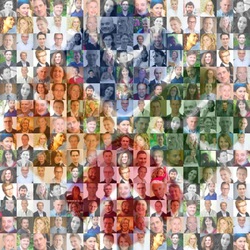|
TRANSLATE THIS ARTICLE
Integral World: Exploring Theories of Everything
An independent forum for a critical discussion of the integral philosophy of Ken Wilber
SEE MORE ESSAYS WRITTEN BY FRANK VISSER
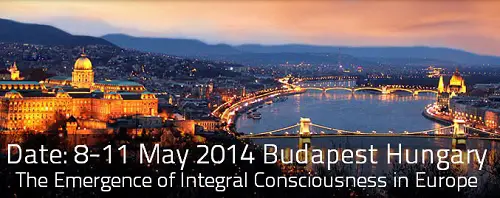
Integral Meets Europe
Impressions from the
1st Integral European Conference
(Budapest May 2014)
Frank Visser
One of the chief concerns of critical theory over the past forty or so years are the numerous problems demonstrated with bias rooted in patriarchy or in a specific geographical, cultural, or academic orientation. In the interest of self-disclosure shouldn't integral theory consider a qualifier to prefix itself as North American or European Integral Theory?
—Richard Carlson, "Integral Ideology", integralworld.net, 2008.
It is exactly here, in cultural exchanges like this conference, that different cultures can teach each other to become aware of their own subtle conditionings.
Around 2000 I was involved in the formation of the Integral Institute and appointed by Wilber as its DA ("devil's advocate") with the special mission to collect all the available criticism regarding Wilber's work, so Wilber could deal with it in an systematic manner. Not that there was much criticism back then—even today, solid and sustained criticism of Wilber is rare. Over the years, I have taken up this task more diligently than Wilber perhaps had in mind by founding Integral World and hosting 1000+ mostly critical essays on aspects of integral philosophy.
At the same time, Brian van der Horst was appointed as Central Facilitator for the integral initiatives that existed outside of the US, mostly in Europe. He, too, took stock of what was going on in the budding integral scene and published about it, from his Paris-based office as business consultant and NLP teacher. We've stayed in contact, and considered ourselves integral veterans, since where I discovered Wilber in the early eighties, Brian's first encounters with Ken Wilber date back to the late seventies.
The 1st Integral European Conference "The Emergence of Integral Consciousness in Europe" which was held in Budapest earlier this month (8-11 May 2014), and which Brian and I attended as presenters, provided an opportunity to reconnect to the integral community as it has grown in the past few years, most notably in Germany and Spain, and now in Hungary.
EUROPEAN INTEGRAL THEORY
The conference organizers Bence Gánti and Dennis Wittrock write in the preface of the conference programme:
"We are now giving birth to a European identity of the integral community, empowering Europeans with a significant role in the larger integral global movement."
The conference brochure continues:
In the past decades, integral consciousness has emerged on a large scale in continental Europe and it has spread over the whole continent. We see that Europeans don't simply repeat Ken Wilber's integral approach, but they define and translate it creatively by and to their own cultural characteristics... Everybody translates Integral Theory into their own view. This is a very exciting finding and based on this we can state that there is a European Integral Community and the members of this extended community have been very much waiting to meet each other.
What role could Europeans play in the context of the still very much US-based integral community? Would they be the mouthpiece of the US community or would they add a distinct and different flavor?
As Richard Carlson wrote in the insightful essay "Integral Ideology" for Integral World:
The practice of Integral Theory attempts to integrate many disparate cultural theories and practices to obtain a global perspective. Integral Theory itself however, is geographically specific. The overwhelming majority of integral theorist are from North America and Western Europe, and certainly a much higher percentages are male theorist. This in itself is not a reason for condemnation, because in the course of history, philosophy has mostly been a man's game and many philosophical schools have been defined by the particular geographical regions of their origin: a British school, a Continental school, the Frankfurt school. However, one of the chief concerns of critical theory over the past forty or so years are the numerous problems demonstrated with bias rooted in patriarchy or in a specific geographical, cultural, or academic orientation. In the interest of self-disclosure shouldn't integral theory consider a qualifier to a prefix itself as North American or European Integral Theory?
Host of the conference was the Integral Academy of Hungary, started in 2006, which provides "three years of progressive theoretical training, therapeutic group experience, meditation retreat and practical therapeutic skills training". As a result of this, participants are promised to develop to Wilber's developmental stage of vision-logic: "authentic and healing relational we-space practices transform people into more refined, aware, compassionate and subtle human beings that we call level-6 (green, yellow, turquoise) personality." In the integral literature, the first post-formal stage of development is called "pluralistic" or green, in Spiral Dynamics parlance, and the next two integral. The "Integral Europe" organization was founded in 2012 and plans to hold more conferences in the future.
Keynote-speakers at the conference were Ken Wilber (through a video and brief live call), Ervin Laszlo, Suzanne Cook-Greuter, Roger Walsh (also through video), Robin Wood and Honti Laszlo. Thomas Hübl, an integral spiritual teacher, could not make it to the conference due to an airport strike. I will comment briefly and personally to the talks of Wilber, Laszlo, Cook-Greuter and Walsh below.
KEYNOTE SPEAKERS
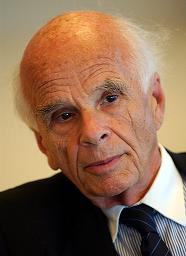 Ervin Laszlo
Ervin Laszlo
Ervin Laszlo's talk "Integral Consciousness in a Self Actualizing Cosmos" was a restatement of topics covered by him in his many books. He claimed to have written 91 books (!), correcting the figure of 75 books that shows up on the internet. During his half hour speech he mentioned four books that were either just released, he was working on or planned to write: The Immortal Mind, Beyond Space-Time, The Self-Actualizing Cosmos and Our Multi-Mind. With such a writing speed, it is understandable that these figures have to be updated frequently!
Laszlo's core thesis is that our consciousness is not stored in our brain, but in a non-local field called the Akashic Field, which is a universal memory field. Many psychic phenomena could be explained by such an A-Field, according to Laszlo. He likened this Universal Consciousness to a hologram, and even to the current hype of cloud-computing. Laszlo also mentioned the ethical implications of this view: if humanity could understand this physics-based view that everything is interconnected, we would share more and create a sustainable society, instead of plundering the earth's resources for our own gratification. Laszlo also frequently suggests we are on the verge of a breakdown, or a breakthrough, depending upon which future we choose.
To me, such statements as "everything is connected to everything else" or "we are one another through this Akashic Field" or "all information is everywhere available if we only know how to contact it" leave me speechless. It is often said that theories of everything may end up explaining nothing, when for every problem at hand the same explanatory concept is invoked, be it an Akashic Field or morphogenetic fields, for that matter. It's also unclear to me how phenomena that appear on the micro level of quantum physics under strict conditions have relevance for the level of human experience. He was asked by someone from the audience how he would respond to Wilber's criticism that reducing everything to quantum physics is quite reductionistic, but he replied that a quantum is no longer seen as material, but as "pure, informed energy". The question was of course referring to Wilber's defense of interiority and (inter)subjectivity as a domain of its own, but apparently for Laszlo these things are secondary.
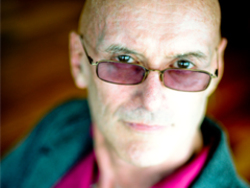 Ken Wilber
Ken Wilber
Ken Wilber's talk "Thoughts on Europe and on Integral" briefly touched upon possible differences between Europe and the United States. Though the US was founded on pluralistic principles ("all men are created equal") and was multicultural from the beginning, it got stuck in the fundamentalistic, mythic stage of development among large parts of its population. It was a mixed success, according to Wilber, because the pluralism was accompanied by superficiality. He estimated about 4% to have reached an integral stage of development, compared to 5% in Europe, giving Europe a slight edge over the US. He also mentioned that a stage-oriented view of society should be complemented by a state-oriented view, a domain in which the East has been traditionally very strong, even if some German idealistic philosophers (Fichte, Schelling) have been pioneering in the right direction.
During the phone call, Wilber was asked what he was working on, and one of the topics he mentioned was to write about what he saw as "serious problems" in the philosophy of critical realism, which could possibly result in a Wilber-6 phase of his work. (During the past Integral Conference in 2013, Roy Bashkar's critical realism was contrasted with Wilber's integral philosophy, and some scholars have suggested integral theory was in need of a "grounding in ontology", which subsequently Wilber denied. In his understanding, integral theory was complete as it is. This is quite a sophisticated debate we have to leave to the professionals to work out. Paul Marshall and Nick Hedlund-de Witt, two students of Bashkar who I met at the conference, are involved in this meta-integral debate.)
Of course, as to the spread of integral consciousness in Europe and the US claimed by Wilber, no polls have been held by any means that could justify the figures Wilber gave, but we will take it as an educated guess from Wilber. At the moment, Europe is trying to realize a political unity, which is a challenging project given the large number of countries involved, all with their own agendas, economic health problems and nationalistic anti-European factions.
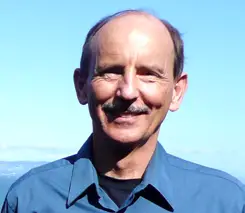 Roger Walsh
Roger Walsh
Roger Walsh gave his views on "The State of Integral - Now and Future" in a video. As the nestor-mentor of the integral community, Walsh always commands the attention of the participants, even of integral leading authors. He stressed the need for doing "quality work" when introducing integral ideas to a given scientific field. I agree, for nothing is more off-putting than claiming deeper knowledge when specific expertise is lacking. He also stressed the dangers and pathologies of integral practitioners who think they are at the forefront of human evolution, without actually embodying this in their own lives.
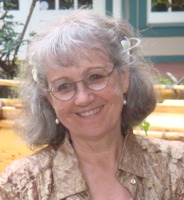 Susanne Cook-Greuter
Susanne Cook-Greuter
Susanne Cook-Greuter gave a remarkable presentation about "On Being Human". This was a different breeze, decidedly also a more feminine voice, among the choir of male abstractions about universal phenomena and theories of everything. She specifically mentioned the recent Your Superhuman Potential course released by Wilber, as an example of the danger of cultivating unrealistic expectations, of reaching higher levels of development in a few weeks. "What's wrong with being human?" she rhetorically asked the audience. During her theoretical presentation she excused herself for always being the "downer" in the integral community, but in my opinion it could use a regular dose of reality checks such as this one! What about Slow Integral, for a start?
A EUROPEAN TONE OF VOICE?
 The Hungarian Food was Good!
The Hungarian Food was Good!
Where the integral community and its authors is usually focused on the Good, the True and the Beautiful, as the three aspects of Spirit manifesting in human consciousness and culture, I felt the need for stressing a different trinity: the Good, the Bad and the Ugly in integral theory. In my presentation "Wilber or Truth" I suggested a differential approach to the field of integral theory, which has its strengths, its weaknesses and cases where it is just plain wrong. This is quite a hard pill to swallow for a mystical-idealistic community such as the integral. In my opinion, integral theory is strong in the field of psychology and spirituality, weak(er) in the field of culture and politics, and often plain wrong in the field of science (e.g. physics and biology). With all the reservations I have towards Laszlo's use of quantum physics, he is much more a scientist than Wilber.
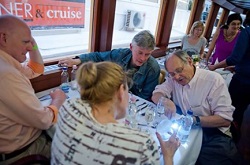 Brian demonstrates his enlightened iPhone
Brian demonstrates his enlightened iPhone
Wilber humorously mentioned the responses he heard from members of the Naropa Institute when confronted with the downsides of American culture, "this is soooo American...!" (look upwards in exasperation). At least this shows an awareness of the power of US culture and its conditioning. The optimistic, confident, idealistic American mind has definitely colored integral theory. This can most easily be perceived by Europeans, who tend to much more cautious, and pessimistic when it comes to grand theories and simple answers to world problems.
In my opinion, a distinct European voice within the integral community would put more emphasis on reflection, criticism, historical awareness, a call for factual evidence and "quality research" in general, compared to the often sweeping claims of US integralism. But probably Americans would consider this to be sooo European...! (and look upwards in exasperation). It is exactly here, in cultural exchanges like this conference, that different cultures can teach each other to become aware of their own subtle conditionings, which only an integral self-reflection can cut through.
|

 Frank Visser, graduated as a psychologist of culture and religion, founded IntegralWorld in 1997. He worked as production manager for various publishing houses and as service manager for various internet companies and lives in Amsterdam. Books: Ken Wilber: Thought as Passion (SUNY, 2003), and The Corona Conspiracy: Combatting Disinformation about the Coronavirus (Kindle, 2020).
Frank Visser, graduated as a psychologist of culture and religion, founded IntegralWorld in 1997. He worked as production manager for various publishing houses and as service manager for various internet companies and lives in Amsterdam. Books: Ken Wilber: Thought as Passion (SUNY, 2003), and The Corona Conspiracy: Combatting Disinformation about the Coronavirus (Kindle, 2020). 
